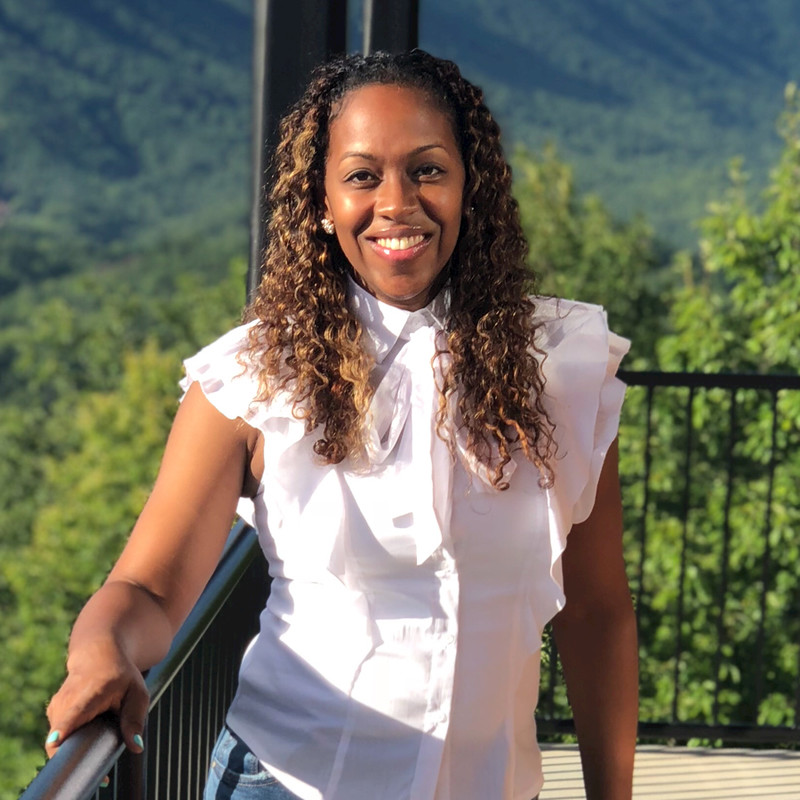Movement Strategy Center Chats with Tansy McNulty, Founder and CEO of One Million Madly Motivated Moms (1M4), About the Launch of 988

On July 16, 2022, 988 is finally going live — a sort of sister service to 911, 988 will replace the National Suicide Prevention Lifeline (1-800-273-8255, which will remain in service after July 16) as a nationwide number for individuals experiencing suicidal thoughts, mental health or substance abuse emergencies, or emotional distress. A first step in reimagining crisis support in the United States, this easy to remember, three-digit number (call, text, or chat) is confidential, free, and available 24 hours a day, seven days a week. Callers will be connected to trained English and Spanish language crisis counselors with interpretation services in over 150 languages.
We (virtually) sat down with Tansy McNulty, Founder and CEO of One Million Madly Motivated Moms (1M4), to discuss the launch of 988. As founder of 1M4, Tansy leads an ongoing effort to compile and share a comprehensive guide of local and regional Mobile Crisis Units all over the country — an often safer alternative to calling the police for Black families in need of mental health support. When 988 legislation was passed, in 2020, Tansy, 1M4, and their resource were in demand — this collection of crisis units and co-responders would be a jumping off point for 988’s network of operator-counselors and the mobile crisis units we all hope will follow, as 988 secures funding and expands.
This interview has been edited for length and clarity.
MSC: What is 988?
TM: 988 is a federal mandate that was created back in December of 2020, that we would have a short, easy to remember, three digit number for suicidal thoughts, mental health emergencies, and behavioral health emergencies. Effective July 16th of this year, 2022, 988 will go live nationally.
MSC: When should we call 988 instead of 911?
TM: 911 is for criminal behavior or medical and physical emergencies … 988 is for those who are having suicidal ideations and those who are experiencing mental health emergencies, or emotional distress. So these are times that you need a counselor, someone to talk to, someone to de-escalate … The hope and the intention is for it to be a national dispatching center for mental health emergencies. That infrastructure is still being built, however … It will not be ready on July 16th in all places — so I want people to be aware that when you call 988 in these situations, depending on where you live, you may still have an interaction with a law enforcement officer.
MSC: How is 988 funded?
TM: 998 will be funded much like 911, in some states … Look at your cell phone bill, and look at the breakdown. On your bill you’ll see something that says 911. Everybody who has a cell phone is paying … 12 cents a month or 15 cents a month for 911. And that’s so it’s a fully funded organization and entity and that means it doesn’t run out of money. Well 988, ideally, would be funded the same way, but some states are running into issues with this additional fee, because it’s become politicized. So, some states are actually leaning towards a one-time grant opportunity to fund 988 and to fund the call-takers, those who will be servicing the 988 systems. The issue with having a one-time grant is it’s one time. And this is something that needs to be sustainable, so that it can continue, stay funded, stay helpful.
"The issue can be that sometimes the states take over and they don’t want communities to drive solutions, when we know communities keep communities safe."
MSC: What are some gaps that 988 does not address?
TM: The hope is for 988 to one day be fully fleshed out, to be able to release mobile crisis response teams, or mobile crisis units as well call it on our website — it’s just not there yet, they’re still building the infrastructure for that. And a big portion of that, too, is the need for funding — you have to be able to fund things for them to work, you have to be able to pay people … When you’re this close to someone going through rough times you need to be compensated well for that. So the funding is needed; and consistent, sustainable funding — not these one time things.
We also need community involvement — we have some community response teams on our website but there are so many others out there … I’m hoping they’re able to be funded through 988 too. The issue can be that sometimes the states take over and they don’t want communities to drive solutions, when we know communities keep communities safe.
MSC: How can we help make 988 better?
TM: Our involvement is needed, because a system that you are not a part of, you’re not considered. It’s very important to be a voice at the table; or just a voice on the other side of the phone. The opportunities to become a call-taker, to become someone who is the voice … Listening to what they need, what they’re saying, providing them the best outlet for help — and the outlet could just be you, listening. It’s amazing to me what happens when people just listen; when people actually feel heard.
We need people on the other end of the phone who sound like the community that’s calling them. So if you’re someone who is empathetic to other people, who has a will to listen … Look up opportunities for employment, to be the voice someone hears when they’re upset … If you are someone who cares about people, who cares about solutions, who cares about public safety, the safety of individuals going through rough times, consider being a call-taker, consider going through the training to become one of those counselors … who are trained to de-escalate, to provide a soothing voice to hear you out in your darkest hour.
"We need people on the other end of the phone who sound like the community that’s calling them."
MSC: What can we do until 988 launches and while it’s being developed?
TM: Right now you can go to our website and look up our mobile crisis units. Look at your state, look at your area, find who’s in your area who can respond to your needs. Particularly if you’re someone who has had or knows of someone who’s had suicidal ideations, or someone who has manic episodes — become familiar now with the guide and the people in your area, before you need them. It’s always best to build familiarity before you need that help. So you can know what their processes are and you know the group that’s going to answer the phone … I encourage you to call [their administrative phone numbers and] just talk — say, what can I expect? I have a family member or a friend who has these things that happen every now and then, what would happen? I don’t want to engage the police — will they be encountered?
On our site it will tell you. We interview the people to ask them — will you include law enforcement? Some said yes, every time; some said only if a weapon is involved — ask them those questions, talk to them. [Save their] numbers now, so if … something happens with [a] loved one, or [you] see someone going through some distress, and it seems like they need help, [you] can call this number and know they have a better chance of surviving that interaction.
You can all help us build out our guide. If you look at our list and you know there’s a mobile crisis response team that’s local to you [that isn’t listed] … Please share with us: go to our website or email [email protected], and send us the name of the organization. We will call them [and ask] them the same questions … just to make sure we understand how they respond.
MSC: How do I know 988 is something safe that I can trust?
TM: We want … to [hear] what’s actually happening in the community. So, after you call 988 we would like to know what happened — so we can document it, we can keep up with it, we can actually report back to the implementation team.
Even for our mobile crisis guide: when you contact these different units, we would like to know what happened, did they get you the help they needed?
I was in contact with a woman in New York … Her nephew was having back to back manic episodes, and when they happen back to back they increase in intensity. They put him on a list — it was a six month wait to get in with a psychiatrist. The family did not want to engage law enforcement, it’s a Black family. So they went to our guide, and they called their local mobile crisis unit, who put them in contact with resources. They ended up actually taking him to the ER, because at some ERs – it should be all but it’s some – there are psychiatrists on staff that you can get in with. So he was able to avoid having to interact with law enforcement by referencing our guide.
And his aunt, the one who contacted me, was extremely grateful that she had that resource, that information. So we want to know from others: when you use our guide, what happens? We want to hear your stories, hear your experiences, we don’t want to share your name … We just want to know your experience so we can get better. We can let individuals know, who are in positions of power — you didn’t do what you were supposed to do, or you did, you did an excellent job, tell your colleagues [and share your knowledge in] keeping people safe and truly caring for people when they need us.

